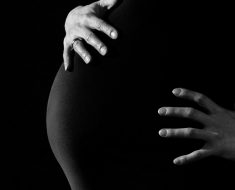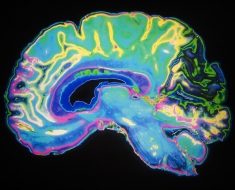Lorraine: Helen Flanagan reveals she suffered with hyperemesis
Helen Flanagan, best known for playing Rosie Webster in ITV’s Coronation Street, is currently in her third trimester, but revealed she struggled at the beginning of her pregnancy with hyperemesis gravidarum. The condition is characterised by excessive nausea and vomiting, and often required hospital treatment.
When asked how the pregnancy was going on Lorraine, she revealed: “I’m really good, I’m in my third trimester now, so I’m 28 weeks.
“My first trimester was horrible though, I had hyperemesis.
“But I’m feeling really good now, I’m over that.”
She added: “I feel really lucky to be expecting my third, so I’m really, really excited.”

We will use your email address only for sending you newsletters. Please see our Privacy Notice for details of your data protection rights.
Kate Middleton suffered from the condition in all three of her pregnancies.
During her first pregnancy, it was so severe she was taken to hospital.
Sickness in pregnancy (often referred to as morning sickness) is common.
Around eight out of every 10 pregnancy women feel sick, are sick, or experience both during pregnancy, according to the NHS.
But while for most women this improves or stops completely by around weeks 16 to 20 of the pregnancy, for some women it can last longer.
The health body explains: “Some pregnant women experience very bad nausea and vomiting. They might be sick many times a day and be unable to keep food or drink down, which can impact on their daily life.
“This excessive nausea and vomiting is known as hyperemesis gravidarum (HG), and often needs hospital treatment.
“Exactly how many pregnant women get HG is not known as some cases may go unreported, but it’s thought to be around 1 to 3 in every 100.

“If you are being sick frequently and cannot keep food down, tell your midwife or doctor, or contact the hospital as soon as possible. There is a risk you may become dehydrated, and your midwife or doctor can make sure you get the right treatment.”
The signs and symptoms of HG can include:
- prolonged and severe nausea and vomiting
- being dehydrated. Symptoms of dehydration include, feeling thirsty, tired, dizzy or lightheaded, not peeing very much, and having dark yellow and strong-smelling pee
- weight loss
- low blood pressure (hypotension) when standing
It should be noted other conditions can cause nausea and vomiting, so your doctor will need to rule these out first.

The cause of HG is not known, but some experts believe the condition is linked to the changing hormones in the body that occur during pregnancy.
Some evidence suggests it runs in families, so if you have a mother or sister who experienced HG, it may be more likely to get it.
So how is HG treated?
There are medicines that can be used in pregnancy, including the first 12 weeks, to help improve symptoms, says the NHS.
The include anti-sickness (anti-emetic) drugs, vitamins (B6 and B12) and steroids, or combinations of these.
The health body advises: “You may need to try different types of medicine until you find what works best for you.
“If your nausea and vomiting cannot be controlled, you may need to be admitted to hospital. This is so doctors can assess your condition and give you the right treatment to protect the health of you and your baby.
“Treatment can include intravenous fluids, which are given directly into a vein through a drip. If you have severe vomiting, the anti-sickness drugs may also need to be given via a vein or a muscle.”
HG is unlikely to harm your baby.
Source: Read Full Article





